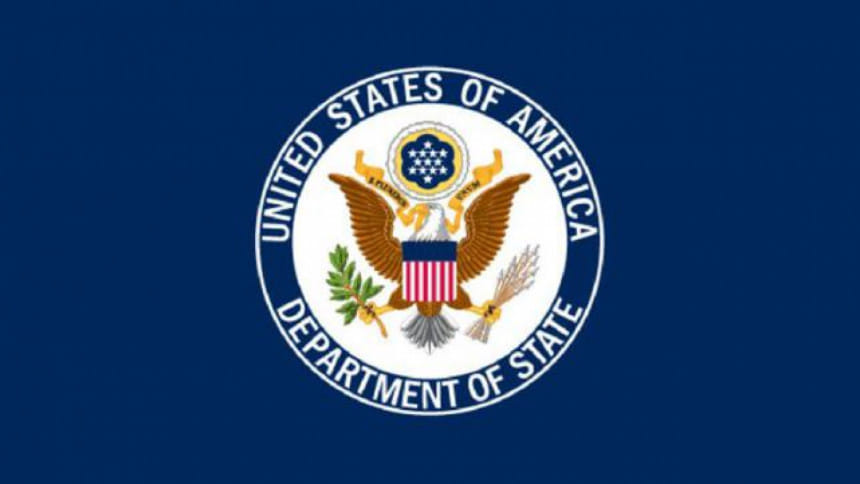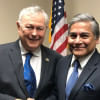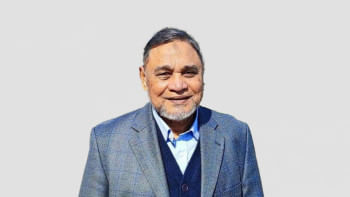Consequences may be grave

The US decision to blacklist seven Islamic State groups from around the world, including one linked to Bangladesh, is a blow to Dhaka's image and may leave an adverse impact on the country in the long run, diplomats and foreign affairs experts have said.
Bangladesh has never faced such a situation and there has not been any such branding or restriction on this country by any state or global body, they told The Daily Star yesterday.
For long, Bangladesh has been following a “zero tolerance policy” on terrorism, and is now an important global and regional counter-terrorism partner of the UN, the US and other countries, they added.
“This blacklisting will adversely affect Bangladesh nationals travelling to the US as it might lead to hassles for Bangladeshis seeking visas. Financial transactions by Bangladesh businessmen may also face difficulties because of unnecessary scrutiny and suspicion by the US authorities,” said a senior Bangladeshi diplomat with expertise on US systems.
“Our people already face many difficulties while travelling to the US. The inclusion of Bangladesh in the terror list will increase their trouble,” he said, adding, “Bangladeshis who have kept their black money secretly in US banks and in other financial institutions will have their accounts blocked.”
On Tuesday, the US Treasury Department's Office of Foreign Assets Control said on its website it added two individuals, and seven groups from Bangladesh, Egypt, the Philippines, Somalia, Nigeria and Tunisia to its sanctions list.
“These terrorists have been designated under a combination of regimes, including as Specially Designated Global Terrorists Under Executive Order 13224 and as Foreign Terrorist Organisations under Section 219 of the Immigration and Nationality Act,” said Nathan A Sales, Ambassador-at-Large and Coordinator for Counterterrorism, while making the announcement.
The organisation linked to Bangladesh is “ISIS-Bangladesh,” according to the list.
Dhaka has not made any official comment on the decision yet, but the government maintains there is no IS presence in the country.
Meanwhile, US Ambassador in Dhaka Marcia Bernicat told reporters yesterday that Washington's designation of “ISIS-Bangladesh” as foreign terrorists did not indicate the existence of the terrorist outfit inside Bangladesh.
"The designation is not about saying ISIS is here...these groups have individuals who have declared or claimed their violent acts in the name of ISIS," she said replying to a question.
The decision will remain in force until it is revoked or the Executive Order lapses or is terminated in line with the US law.
Among the consequences, any transaction or dealing by US persons or within the United States in property or interests in property pursuant to the Order is prohibited. This includes making or receiving any contribution of funds, goods, or services to or for the benefit of designated individuals or entities, according to the US law.
“This [the inclusion] has unnecessarily highlighted Bangladesh very negatively…we don't need it,” said former Bangladesh ambassador to the US Humayun Kabir.
According to him, it is a “cautionary note” for Bangladesh.
The US move may also have negative impacts on the ties with Western countries, especially those having close relations with the US. This will create a lot of hassles for Bangladeshis anywhere in the world, diplomats and experts said.
Dhaka should immediately sit with the US authorities with all necessary information, documents and evidence that there is no such entity (ISIS-Bangladesh) in Bangladesh, they added.
“It's very important and most urgent that Bangladesh take effective steps for removing its name from the US sanctions list for global terrorism,” said a Bangladeshi ambassador stationed in an important Western country.
Bangladesh is an important partner and friend of the US in countering terrorism. So the government should ask the US authorities why they branded Bangladesh this way, he added.
“Did the US alert Bangladesh? Did they help Bangladesh anyway so that it does not have to face such a satiation?” he asked.
According to him, it will not be easy to take Bangladesh's name off the list.
Another diplomatic source told The Daily Star that the US had long been seeking access to Bangladesh's internal system of sharing intelligence information, but the government denied the permission.
The source added the US wanted copies of the intelligence reports that various agencies submit to top government officials and authorities.
“Bangladesh shares information with the US and other important partners related to counter terrorism and extremism as part of its commitment to eliminate terrorism. But the country did not allow the US any access to the internal information sharing system,” he said.

 For all latest news, follow The Daily Star's Google News channel.
For all latest news, follow The Daily Star's Google News channel. 




Comments